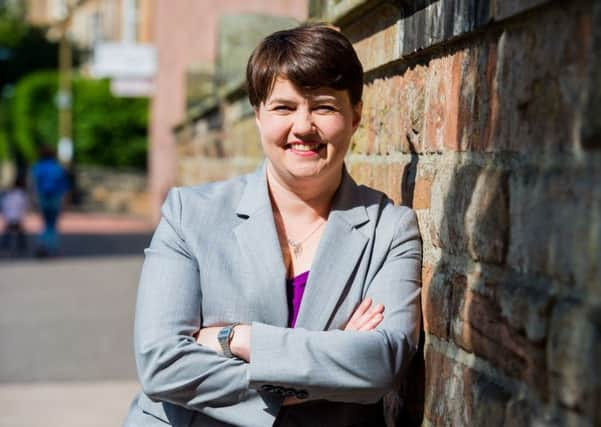Scott Macnab: Tory surge latest twist in a dramatic decade


Of course, Nicola Sturgeon can sleep easy. There is no real threat to the SNP sweeping to another Holyrood majority in May’s Scottish elections. But if the Tories can edge out Labour to become the second party in Scotland, it would mark another milestone in a decade of political upheaval for the country.
A YouGov poll last week which put Ms Davidson’s party narrowly in front of Labour in constituency votes simply built on the trend of recent surveys. But is this down to an underlying shift in the political dynamic with Scots looking for an alternative to the cosy left-of-centre consensus which has dominated for so long? Or are voters simply not impressed with the other opposition parties and see the Tories as a better bet? Probably a bit of both.
Advertisement
Hide AdAdvertisement
Hide AdThe Tories themselves certainly believe that there is major tranche of Scottish voters who are looking for some kind of alternative – if that’s not going to be a change in the government then why not change the opposition? In the aftermath of the referendum and with instability remaining over the constitutional question, the Tories are the one party which has remained steadfastly pro-Union.
Labour leader Kezia Dugdale and Willie Rennie of the Lib Dems both caused a stir when they announced that their MSPs would be free to campaign for independence in the event of another referendum. Not so Ms Davidson, who played a starring role in the referendum campaign, and has made it clear her party won’t dance to the Nationalists’ tune on this issue.
Labour, along with the Lib Dems, won some plaudits with its bold plans to put up income tax by a penny. It certainly wrong-footed the SNP which was left struggling to cling on to its left-wing credentials. The key impact of this – among voters – remains to be seen. As austerity continues to bite, urging struggling families to vote for a tax hike will be a tough sell. This has left Ms Davidson with an open field as the party in Scotland which has pledged not only to keep taxes frozen, but a recent Commission established by Ms Davidson even suggested they could be cut when affordable.
The traditional Conservative opposition to the creeping tentacles of the state into the everyday lives of citizens has also seen the Scottish party lead the fight at Holyrood against so-called “state guardians” being appointed for all children. The party is also keen to see greater parental involvement in the running of the country’s schools. And Ms Davidson’s position as the only party leader in Scotland backing retention of Trident will also strike a chord among many Scots, with every poll showing the public is split down the middle on the future of the Clyde-based nuclear deterrent.
Of course, the Tories have never gone away in Scotland and regularly took up to one in six votes even during the lean times. But if the party can take advantage of the changing dynamic in May and oust Labour as the main opposition party, it may just pave the way for that long-awaited revival and a shift in the centre ground of Scottish politics.